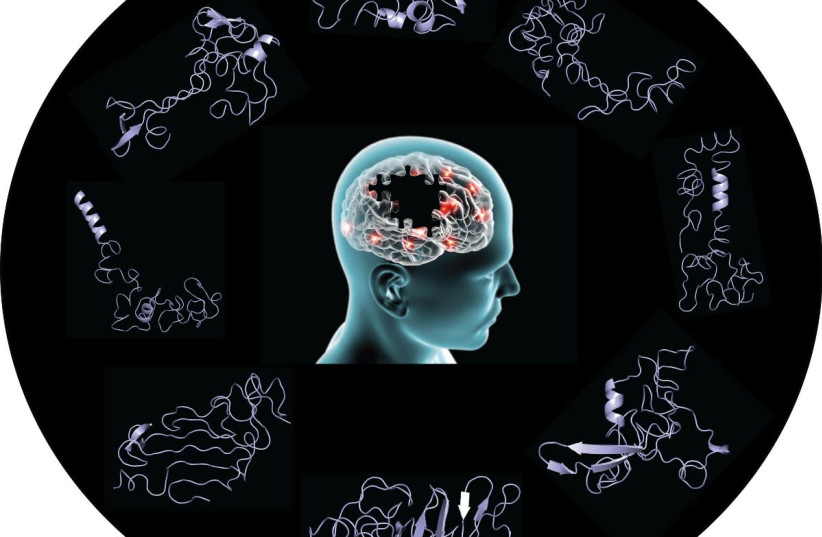
Parkinson‘s Disease is one of many neurodegenerative diseases, and it is caused by an overproduction of a specific protein in the brain. New research analyzes how they form, and may lead to advancements in therapeutic drugs and treatments. The study was jointly published by a group of researchers from the Hebrew University of Jerusalem and Penn State College of Medicine. It was published in the Structure journal on Wednesday. There is a protein in the brain called alpha-synuclein, which is responsible for regulating the release of neurotransmitters. Alpha-synuclein is found in neurons in the brain, and though it is a single unit, it often joins with others. When these protein collections become large masses – known as Levy bodies – they can lead to the development of neurodegenerative diseases, including Parkinson’s, which affects around 10 million people worldwide. The research team decided to study the origin of the degenerative diseases, the protein itself, something which initially proved difficult because the protein doesn’t exist in a 3D structure, which makes it hard to analyze. Experiments developed by the team “allows us to study the conformations of alpha-synuclein in a way that is otherwise difficult to identify in experimental studies alone,” said Nikolay Dokholyan, professor of pharmacology at the College of Medicine and Penn State Cancer Institute researcher. Their research proved fruitful when they were able to map out the different shapes that the protein can assume, thereby opening “up possibilities for the development of drugs that can regulate the function of this protein,” said Jiaxing Chen, a graduate student at Penn State’s College of Medicine.
if(window.location.pathname.indexOf(“656089”) != -1){console.log(“hedva connatix”);document.getElementsByClassName(“divConnatix”)[0].style.display =”none”;}The next step was to track the shapes that the protein takes in later stages of Parkinson’s. “The information from our study could be used to develop small molecule regulators of alpha-synuclein activity,” Eitan Lerner, the Hebrew University’s laboratory professor said. These drugs could “prevent protein aggregation and enhance its normal neuro-physiological function and may interfere with the development and progression of neurodegenerative diseases,” Lerner explained.Read the study here.




